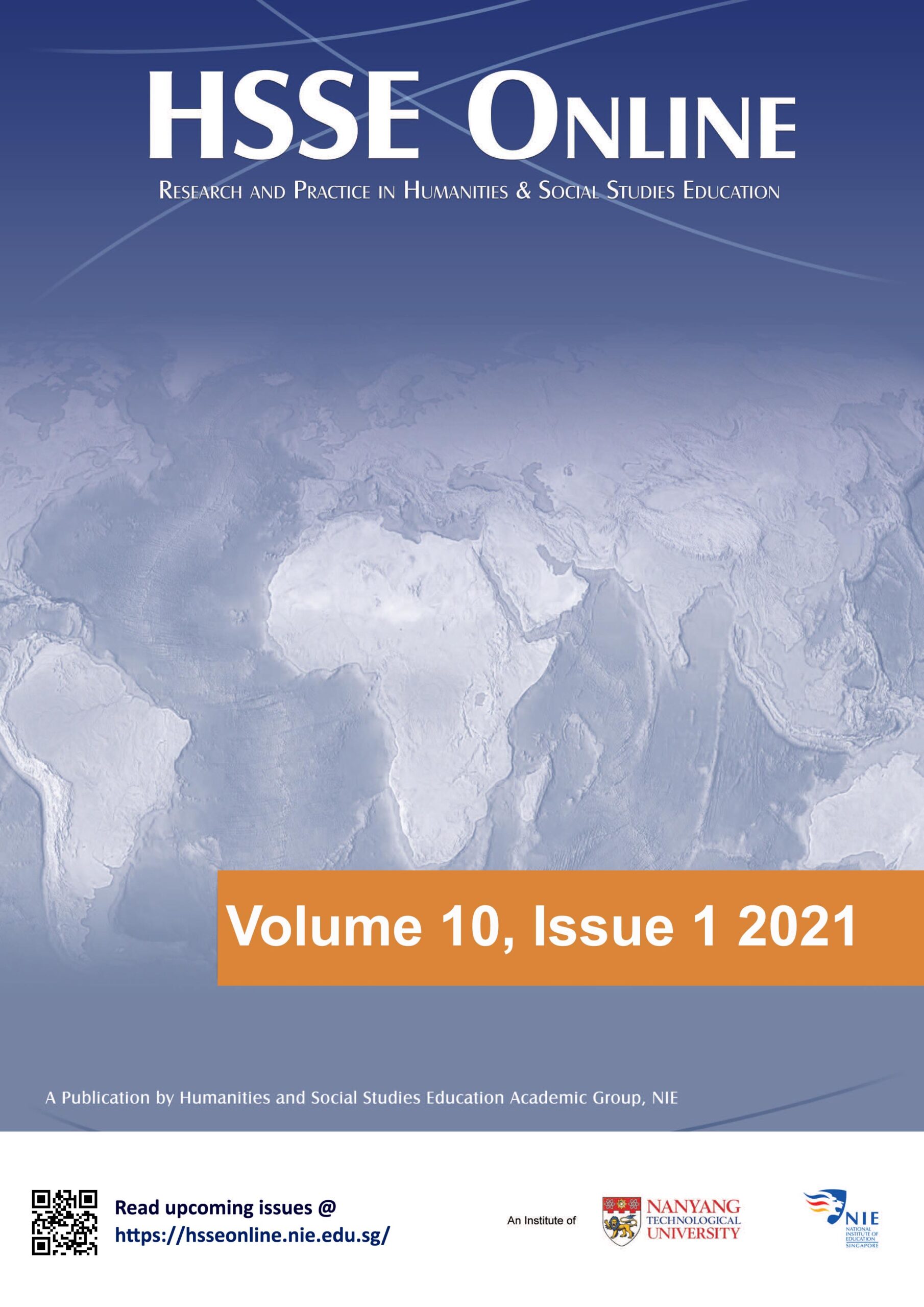HSSE Online Editorial
This year marks the twentieth anniversary of the introduction of Social Studies (SS) in Singapore secondary schools. Originally conceived as part of a push for National Education, SS has since expanded in ambit to address contemporary issues and to equip students with the tools of social inquiry. By bringing into conversation the voices of scholars and practitioners, this special issue of HSSE Online captures the vitality of Singapore’s present-day SS education landscape.
The first article by Aloysius Foo stands in the tradition of the sociology of education. Using the case study of a heartland Junior College, Foo challenges our assumptions about “neighbourhood schools” by highlighting the density of cultural, symbolic, and emotional capital in nonelite environments. In so doing, Foo calls on readers to focus on the strengths rather than the deficits of their respective school communities. The consummate researcher-practitioner, Foo reminds us that classrooms are, themselves, the sites of complex social phenomena, which invite self-reflexivity from SS educators.
The next two articles focus on aspects of the secondary SS curriculum, which since 2016 has been organised around the principles of Inquiry-Based Learning (IBL). Recognising the central but under-explored role of framing questions as part of IBL, Peidong Yang and Jun Yan Chua propose a taxonomy of SS inquiry questions. Collectively, the “Politician’s Question”, the “Social Scientist’s Question”, and the “Social Worker’s Question” reflect a range of approaches toward the disciplinarity of SS. Moving beyond traditional debates about the appropriate aims of SS education, Yang and Chua provide teachers and students with a heuristic for thinking about different starting points for social inquiry.
Drawing on findings from the Core Research Programme—a large-scale, cross-sectional, baseline investigation of pedagogical practices in Singapore classrooms— Fatema Anis Hussain offers insights into the reality of inquiry learning enactment in the present-day secondary SS classroom. Examining both qualitative and quantitative data, Hussain captures the complexities, challenges, and considerations in Singapore SS teachers’ pragmatic approach to inquiry learning.
Diversity and inclusion have emerged as focal issues in Singapore society of late, with significant implications for SS education. Two articles engage with these questions in the context of primary SS. Wang Yao Chang Melvin examines the effectiveness of graphic organisers in improving reading comprehension of SS informational texts in upper primary students with High Functioning Autism. His iterative, evidence-based approach reflects the deep commitment of educators to supporting students with Special Educational Needs, and to making SS accessible for all.
Using the framework of Multicultural Education, Adele Seah Pei Jia unpacks the treatment of diversity in the revised 2020 Primary Social Studies syllabus. Seah’s project grew out of NTU’s Undergraduate Research Experience on Campus (URECA) programme, which aims to promote a culture of inquiry in the most academically able undergraduate students. In the light of ongoing public debates about multiculturalism, which some commentators have attributed to generational change, Seah’s perspective on the issue as a future SS educator is especially valuable.
The issue concludes with a review essay by Pang Wei Han, who surveys three recent works in Singapore Studies, and discusses how teachers might apply their findings as dynamic content in the secondary SS curriculum. Although SS educators unanimously recognise the importance of engaging with current issues in their classrooms, the competing demands placed on teachers can make it challenging to keep up with the rich array of social research emerging from the local research ecosystem. Both editors wished they read more extensively, and Pang has done us all a service by distilling insights from the frontiers of scholarship on Singapore.
When SS was first implemented at the Upper Secondary level in 2001, it was not without its skeptics. Twenty years on, in an increasingly volatile and complex environment, the relevance and necessity of SS is no longer in question. The range of perspectives in this issue reflect the profound belief that SS scholars and practitioners share about the importance of the subject. As they reimagine the futures of SS, the work in this volume also pays tribute to a generation of SS educators in Singapore.
Peidong and Jun Yan
Singapore
November 2021

